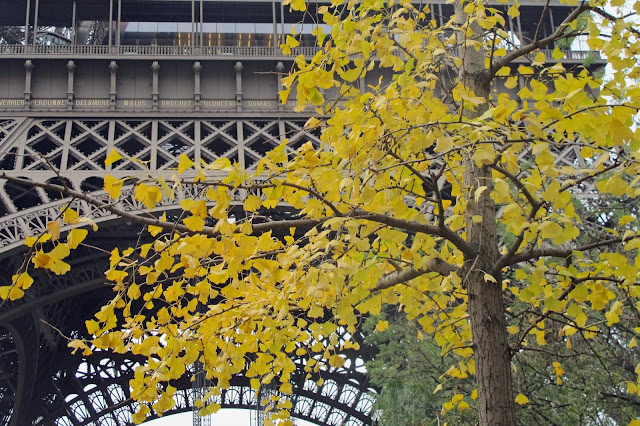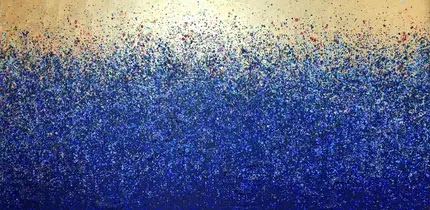28.11.13
25.11.13
Saint Catherine
Today we are celebrating Saint Catherine.
There are
many Saint Catherines, but the most celebrated one is probably the early 4th
century Saint Catherine of Alexandria, also known as ”Saint Catherine of the
Wheel” or the “Great Martyr Saint Catherine”. (You can read more about her here.)
After different methods of torture, she was finally beheaded by the Roman
Emperor Maxentius.
Saint Catherine is or was the patroness of many, including young
maidens.This makes
the link to the French tradition to ”celebrate” girls, still unmarried at the
age of 25, on the Saint Catherine’s day. The unmarried – referred to as “Catherinettes”,
are supposed to wear fantasy hats with coloured bands (green for wisdom, yellow
for faith), to go out dining with friends and perhaps go dancing, maybe in the
hope to find a future husband before the end of the day. (Originally you were also
supposed to make a prayer to Saint Catherine.)
On the
Square Montholon, along rue Lafayette…
… you can
find a statue of some “Catherinettes”. It was made in 1908. Things have changed
since then. Maybe those days, more than 90 percent of the girls had found a
husband before the age of 25, today the percentage may be around 10 or 15. Less
and less people get married and if they marry, the average age for the female
partner has during the last 50 years increased from 23 to 30.
I took
these photos about a week ago in the sun and the autumn colours…
Labels:
Paris 9
21.11.13
The Hippodrome
What we see above is the hotel and shopping building which today
stands close to Place de Clichy.
Until 1973 a completely other type of building stood here, first
built for horse racing, a hippodrome, which stood ready in 1899, also used for
soccer games and all kinds of shows, then for a while used as a circus.
Rather soon it was transformed to a cinema and took the name
of « Gaumont Palace » in 1911. The projection of films those days involved
a great danger of fire – some serious
accidents had occured including the one at the « Bazar de la Charité ».
(I talked about it in a previous post.) For this reason the films were in the
beginning projected from a seperate room behind the theatre (a mirror system)
on a transparent screen.
1930-31 the architecture was seriously modified in an Art Deco
style - as well the interior as the exterior. It was said to be the biggest
cinema theatre in the world with some 6 000 seats. Different modifications
took place over the years to adapt to new projection techniques, a giant screen…
, but fashion changed, the large public was not there any more … and the Palace
disappeared in 1973 and was replaced by the hotel and shopping building you van see on the top picture. .
Music was performed in the cinema theatre. There was an orchestra and an organ.
The organ has been saved and can today be found in the only « pavillon
Baltard », which was saved when the « Les Halles » were
remodeled (to say it kindly) in the beginning of the 1970’s. You can find it in
the suburb Nogent-sur-Marne. Today « Les Halles « are again
remodeled, but that’s another story.
Labels:
Paris 18
18.11.13
Christmas show windows again
Since 2009 I have taken photos of the Christmas show windows of the department stores Galeries Lafayette and Printemps. Here you can see what they look like this year. (Click here to compare with the years 2009-2012.)
First Printemps. Most of the windows are perhaps more devoted
to luxury fashion than being children-friendly. The top picture is however from
Printemps. The exterior with its towers is really specatcular.
There are a few more children-friendly windows at Galeries
Lafayette. The exterior decoration (perhaps more spectacular previous years) was changed already last year. What
espeically, as usual, draws the attention is the giant christmas tree under the
cupola.
Labels:
Au Printemps,
Galeries Lafayette,
Paris 9
14.11.13
Dufayel
I recently
made a post about the sculptor Jules Dalou (see here). I neglected to mention
one of his works which can be found on the façade of a building in the 18th
arrondissement.
Started in
1856, the “Grands Magasins Dufayel”, increased in size over the years and was, when
complete in 1913, considered to be the world’s largest department store, specialized
in furniture and house equipment. There were some 15 000 employees. “Dufayel”
seems to have been the first to offer organized credit to customers. (A
staff of 800 employees visited then people to get the weekly installments.) The
stores were situated in a working class area and the clientele was not only “bourgoise”
as was rather the case with the other newly started department stores. “Dufayel”
closed in 1930 and was later taken over by a bank, with a transformation (demolition)
of the interior. In the 1990’s large parts of the buildings were further transformed,
rebuilt to apartments.
Some pictures
“stolen” on the net show what the interiors once looked like. They included a concert
hall, a theatre, a cinema…
The main
entrance, decorated by Jules Dalou stood ready in 1895. His works represent “Le
Progrès entrainant l’industrie et le commerce” (Progress drawing along industry
and commerce). The dome on the top,
which also was some kind of lighthouse, disappeared in 1957.
This is what you today can see of the partly tranformed buildings. ("Virgin", recently closed, had an outlet here.)
Labels:
Paris 18
11.11.13
7.11.13
The Galliera Museum
Yes, autumn is here… time to visit museums.
The Galliera Museum was recently reopened after important
restoration.
This remarkable and extravagant building, which stood ready
in 1894, is the result of a donation by the Duchesse de Galliera, rich heiress
of the Duke. It belongs to the City of Paris (by mistake ; the duchesse
wanted it as a gift to France).
It was intended to house the family’s art
collection, but before the museum was finished, the Duchesse got a good reason
to be upset – being of direct descent from the Royal House of Orléans, she was
supposed to be expelled from the republican France. Consequently, the art collection was given
to Genoa, Italy.
So, the museum was for a long time used for various
exhibitions, temporary shows, auctions… Since 1977 it has been operated as a
Museum for fashion. Normally, you can
find dresses worn by Marie-Antoinette, Audrey Hepburn… and a lot of dresses
made by leading designers like Balenciaga, Balmain, Dior, Fath, JP Gaultier, Givenchy,
Rabanne, Yves Saint Laurent… Right now there is specific Alaïa exhibition.
However, photos from the inside
are not allowed.
Labels:
Paris 16
Subscribe to:
Posts (Atom)
































































